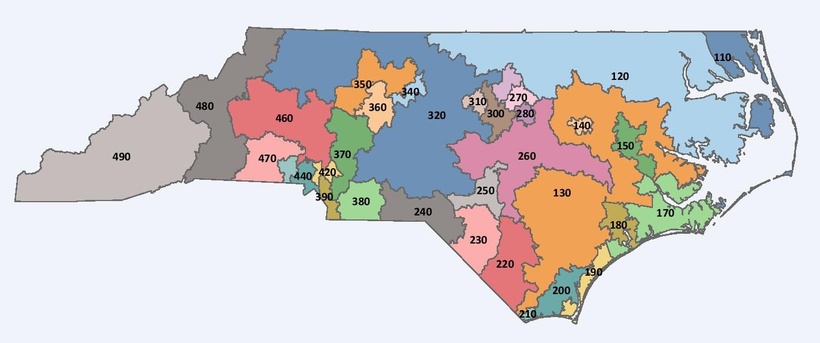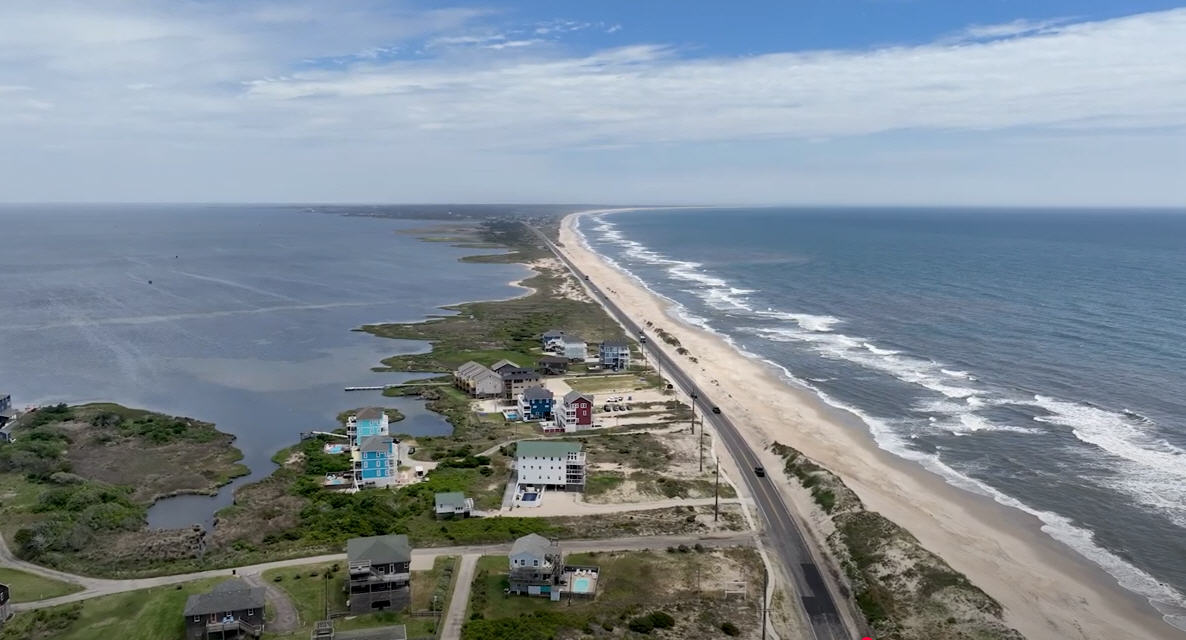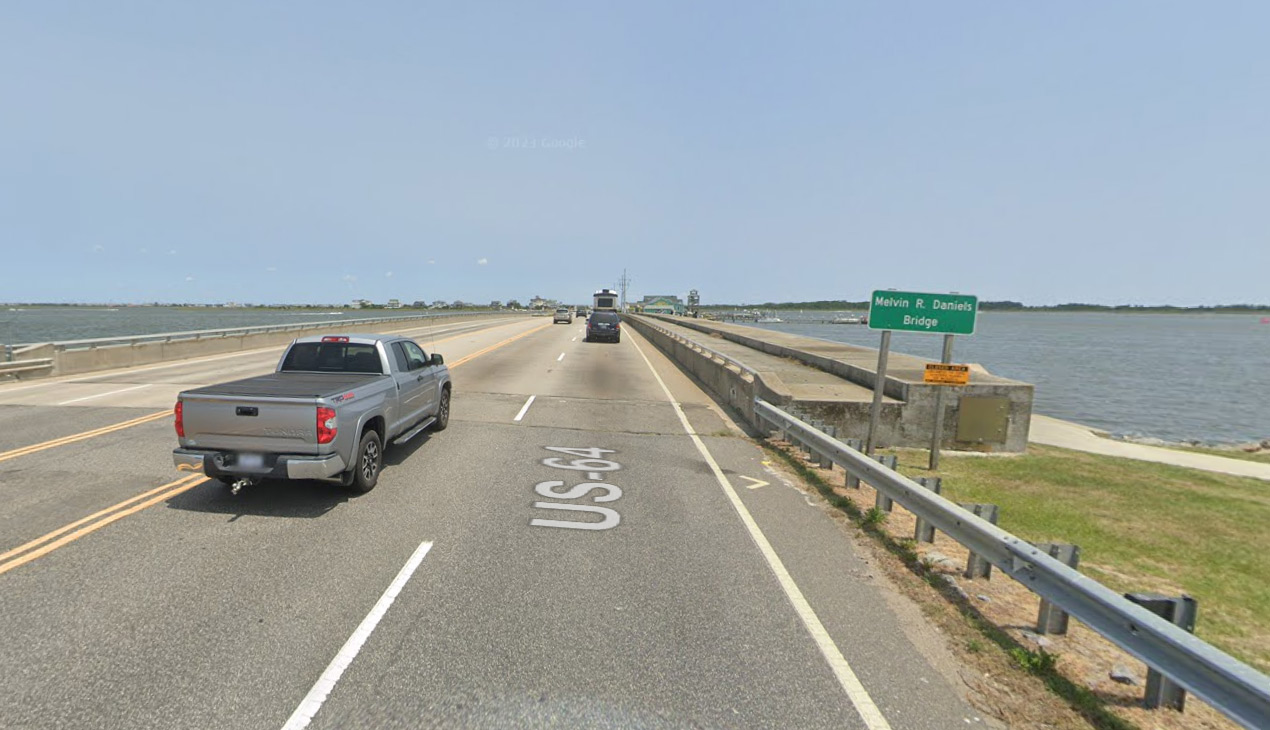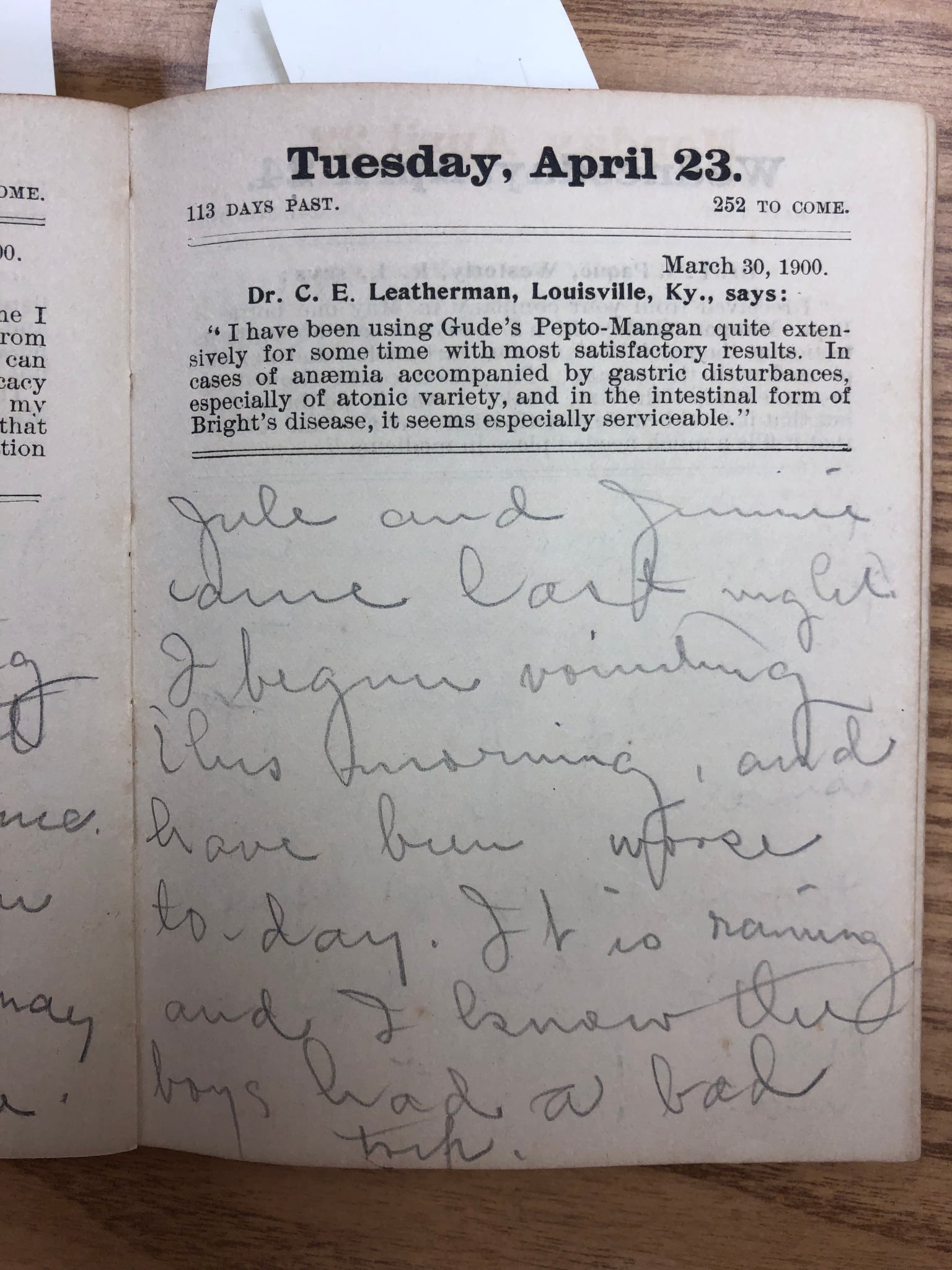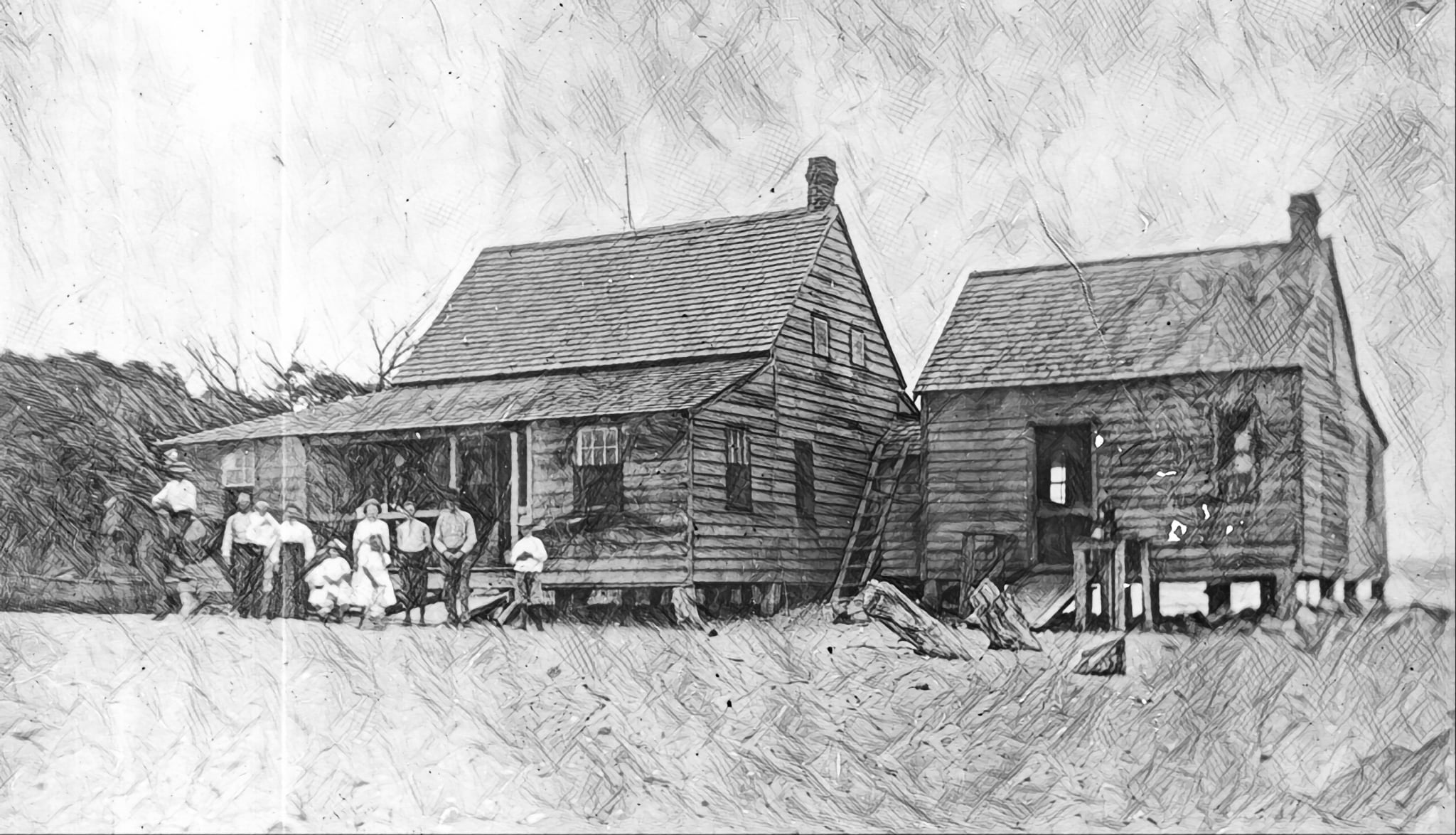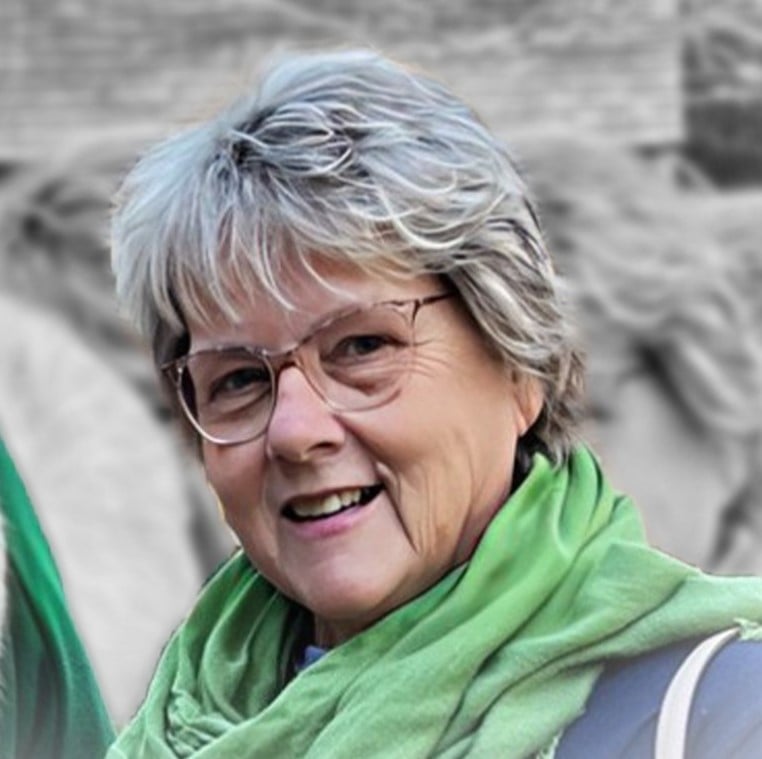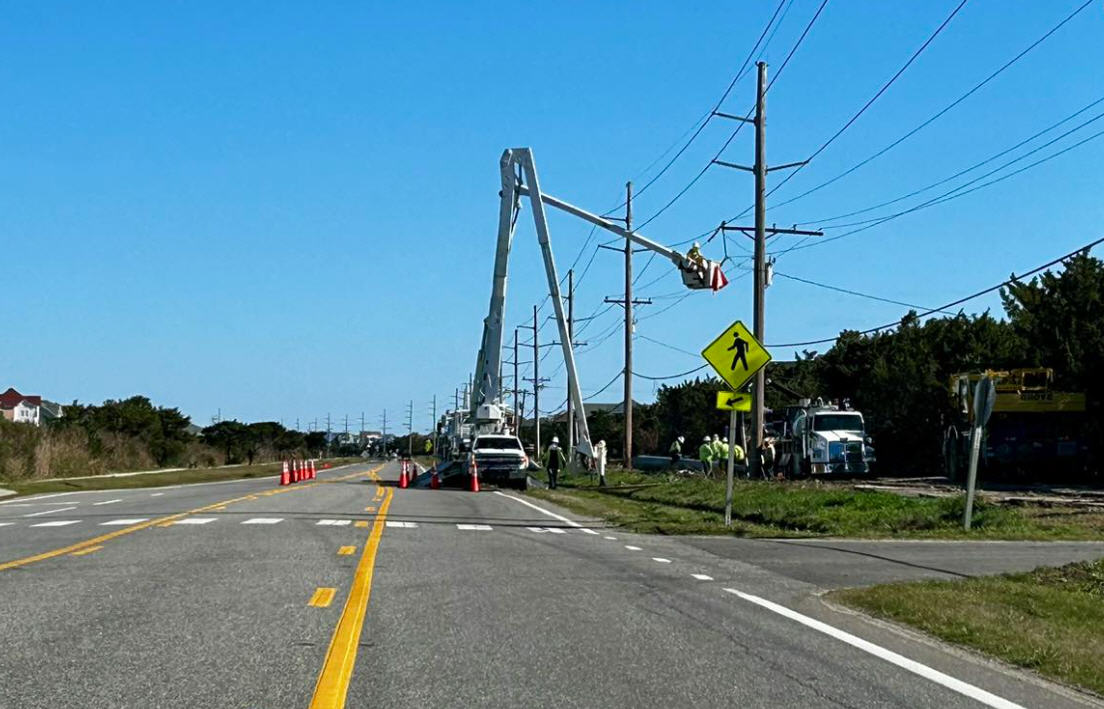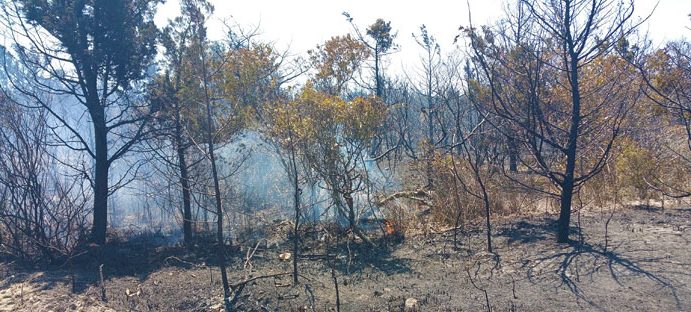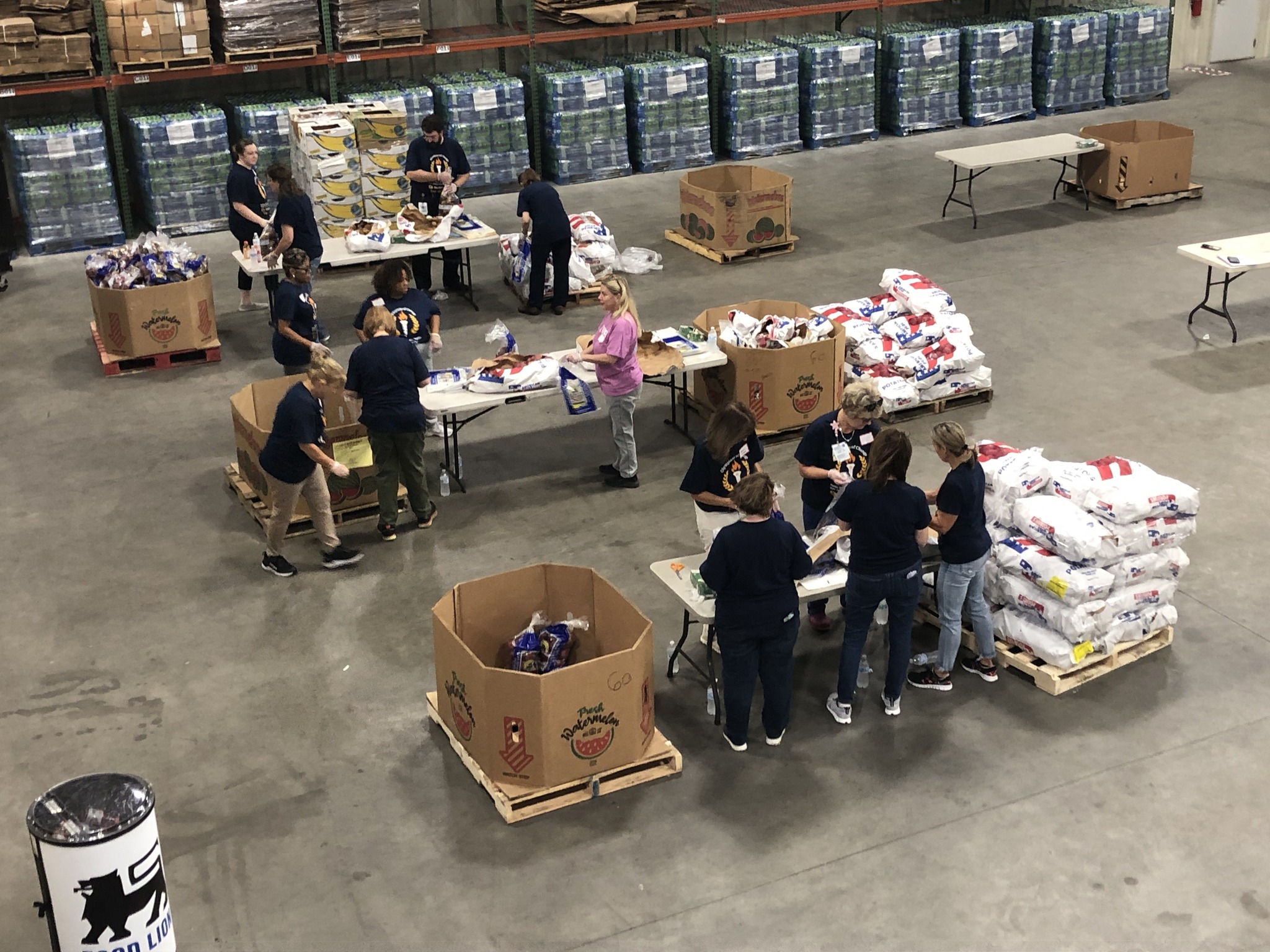Hatteras-Ocracoke ferry traffic and long wait times are the focus of public meeting
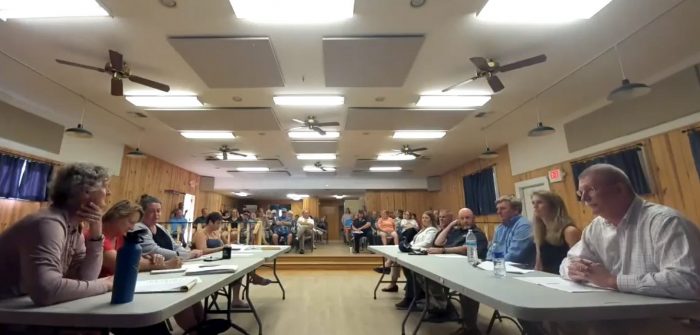
Ocracoke residents heard updates on the Hatteras-Ocracoke ferry schedule, vendor priority passes, and new stacking lanes for the Ocracoke ferry terminal at a well-attended public meeting on Tuesday evening, May 16, at the Ocracoke Community Center.
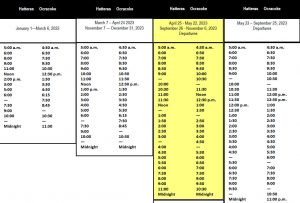
Hosted by the Ocracoke Civic & Business Association (OCBA), and live-streamed on their Facebook page, the meeting was an opportunity for the community to receive updates on what has been a challenging spring season when it comes to the number of Hatteras-Ocracoke ferry runs per day, and the corresponding wait times.
“This really started back in March when Jed [Dixon, Ferry Division Deputy Director] was having a conversation with a few of us, and he said ‘there are some issues with the priority lane, and the Ferry Division would really like Ocracoke as a community to get involved in these discussions on what could be done to minimize the impact the priority lane has had on the wait times of our summer guests,’” said Ocracoke Occupancy Tax Board Chairman and OCBA’s Bob Chestnut. “We thought this would be a good topic for May, and of course, everybody knows what happened in the meantime.”
As the Ocracoke Observer reported on May 12, a delay in announcing an official start date for the Ocracoke Express passenger ferry was caused by a $1.6 million shortfall in the NCDOT’s fuel fund. In addition, the Hatteras-Ocracoke vehicular ferry had fewer runs in 2023, nixing the late-spring schedule that was supposed to begin April 25.
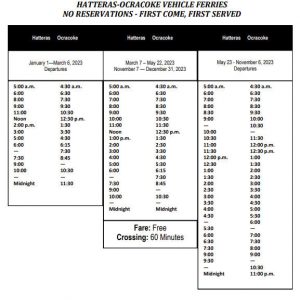
“What’s different this year than any prior year? This year is the first year that the Ferry Division has had a budget that does not allow you to overdraft, period,” said North Carolina Department of Transportation’s (NCDOT) Ferry Director Harold B. Thomas, who attended the Ocracoke meeting. “Within the last eight weeks, we’ve been speaking with your elected officials, letting them know what we foresaw coming as being a problem.”
“On Friday, we secured a loan to the Highway Division of $2 million dollars,” said Thomas. “The good news that I can share with the constituents and everybody here… is that on Tuesday the passenger ferry will go into service. There will also be additional scheduled departures starting next week between Hatteras and Ocracoke.”
An official press release regarding the 2023 launch of the Ocracoke Express passenger ferry service and the increased summer ferry departures is expected sometime on Wednesday, May 17. However, there were lingering long-term concerns about the high fuel costs, and how the ferry’s budget and subsequent schedule would be impacted in the future.
“We feel that we put ourselves in a good position to provide the service you’re going to need,” said Thomas. “The problem we had was financial.”
“If you look at 40 years of the ferries, fuel budgets ranged anywhere from $4.3 million to $6.7 million dollars. This year, you’re looking at hitting over $8 million and it’s been a problem…. But I am optimistic as I speak with you that next week will be better than this week.”
In addition to the ferry schedule updates, representatives from the NCDOT’s Ferry Division, which included Thomas, Deputy Director John (Jed) Dixon, and Planning and Development Manager Catherine Peele, provided updates on other aspects of the Hatteras-Ocracoke ferry, including stacking lanes and priority passes.
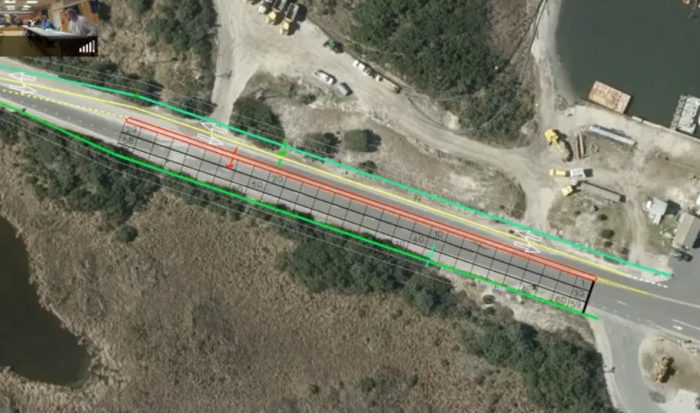
Ocracoke’s ferry stacking lanes
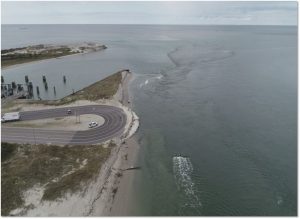
For many years, vehicles waiting to board the ferry to Hatteras in Ocracoke would wait in stacking lanes that curbed around the edge of Hatteras Inlet. However, after years of erosion that was augmented by 2019’s Hurricane Dorian, this loop has been eliminated, and vehicles now wait in the roadway, with traffic occasionally backing up on the northern end of N.C. Highway 12 on Ocracoke Island.
“We applied for what’s called the American Marine Highway Program Grant that is through the Maritime Administration, [which is] about $1.5 million dollars,” said Peele.
“The curb that we used to use, there is currently nothing that we can do right there, because of the environmental law that does not allow us to harden that structure any further. But [we] have a preliminary design in place to create 87 extra spaces.”
Essentially, in the design, vehicles won’t be stacked in a single line down N.C. Highway 12. Instead, a second lane will be added by widening the roadway next to the ferry docks.
The project is expected to take a year of permitting, and then a construction timeline can be formed. “We have to time that very specifically to obviously not do construction in the summertime,” said Peele.
Heat maps and ferry wait time notifications
One of the questions that stemmed from the OCBA meeting was whether the ferry division could post a sign of current wait times on the northern edge of Ocracoke village, so that vehicles that were heading to the ferry would know if there was a lengthy delay. “This way, if they are looking at a three to four-hour wait time, they would have a reasonable opportunity to turn around and come back into the village.”
Dixon noted that constantly updating the wait time accurately via communications back and forth with the Hatters-Ocracoke ferry terminal would be difficult. “That’s something that changes all the time,” he said.
However, both meeting attendees and NCDOT representatives pointed to two resources that helped determine highly busy times at the Hatteras-Ocracoke ferry.
DriveNC.org, which is managed by the NCDOT, has a camera stationed at the Hatteras Ferry Terminal that shows how many vehicles are in line for the ferry at any given moment.
In addition, the Ferry Division has published Departure Time Heat Maps that show the peak times for ferry traffic.
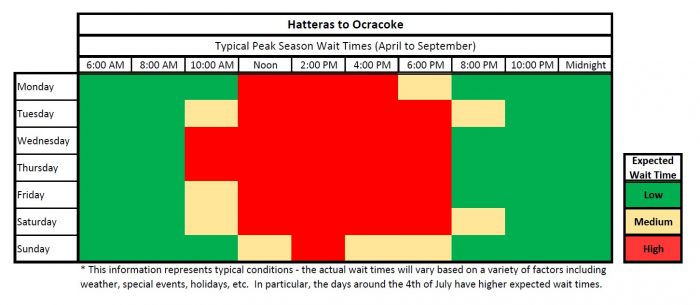
For the Hatteras village terminal, traffic is highest from 10:00 a.m. until 7:00 p.m., on Mondays through Saturdays.
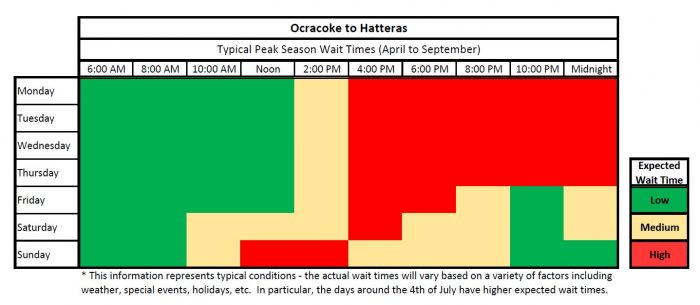
At the Ocracoke terminal, traffic is highest from 4:00 p.m. until midnight, on Mondays through Saturdays.
Vendor priority passes
Another concern addressed at Tuesday’s meeting was the influx of vendor priority passes. Ocracoke residents and vendors who conduct business on the island are allowed to use the priority lane in order to board first, provided they fill out an application and go through a screening process to obtain a priority pass. (For vendors, there is also a $150 fee which covers all vehicles within a business.)
“What we have seen over the course of the past several years is a growing number of vendor passes,” said Dixon. “What typically happens with the flow of the traffic is that during the busiest part of the day when that priority lane is full, it’s hard to move those [regular vehicles].”
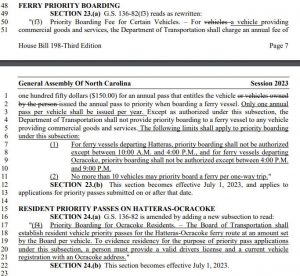
“It has created some logistics problems for us being able to effectively move all of the traffic when the number of priority passes is growing every year, and there are more people using [them].”
There have been several proposed solutions, outlined and included in North Carolina’s House Bill 198, which was introduced in February 2023.
The bill would make vendors pay a $150 fee for every vehicle included in a business, (instead of having a blanket $150 that covers all vehicles), and would potentially adjust the times when the vendor priority pass could be used.
The current verbiage in the proposed legislative bill regarding vendor times and usage includes the following:
“(1) For ferry vessels departing Hatteras, priority boarding shall not be authorized except between 10:00 A.M. and 4:00 P.M., and for ferry vessels departing Ocracoke, priority boarding shall not be authorized except between 4:00 P.M. and 9:00 P.M.
(2) No more than 10 vehicles may priority board a ferry per one-way trip”
The bill is still in process after passing the third reading in the House and first reading in the Senate, and was referred to the Committee on Rules and Operations of the Senate on May 3, 2023. If passed, the bill states that the section becomes “effective July 1, 2023, and applies to applications for priority passes submitted on or after that date.”
During a public comment period, meeting attendees brought up concerns about the ferry budget, (with interim funds expected to last until July 1), and the details of the vendor priority passes, and the accompanying language in House Bill 198.
Thomas encouraged Ocracoke residents to continue their lobbying efforts in order to identify and enact long-term solutions.
“Honestly, like I said in my opening, I think all your efforts are why we’re all here tonight,” said Thomas. “I think your voices have been heard, and I would ask that you continue to make sure your voices are heard.”
To view Tuesday’s meeting in its entirety, visit the OCBA’s Facebook page.




